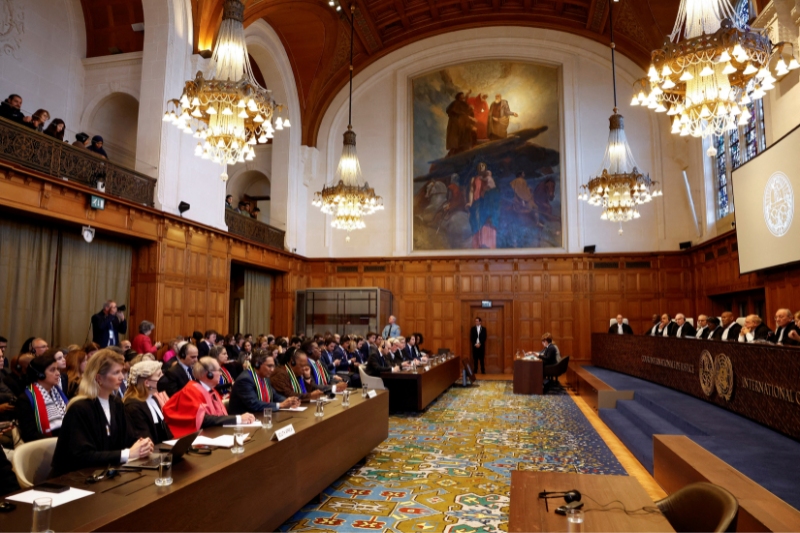Israel’s Response to South Africa’s Request
Israel has vehemently opposed South Africa’s recent plea to the United Nations court for interim measures aimed at averting starvation in Gaza. In its written response to the International Court of Justice, Israel labeled South Africa‘s claims as baseless and morally repugnant, asserting that they amount to an abuse of the Genocide Convention and the court itself. Israel adamantly rejects the notion that its military operations in Gaza violate the convention and emphasizes that civilian casualties are an unfortunate byproduct of the conflict that Hamas started.
Humanitarian Crisis in Gaza
The plea from South Africa comes amidst dire warnings from the U.N. food agency of an imminent famine in northern Gaza, where a staggering 70% of the population faces catastrophic hunger. The deteriorating situation has raised concerns that further escalation of the conflict could push half of Gaza’s total population to the brink of starvation. Despite these grim realities, Israel maintains that it is actively working to alleviate the suffering in Gaza, underscoring the complexities of the ongoing armed hostilities.
Keep Reading
Legal Proceedings and International Response
While no date has been set for the court’s ruling on South Africa’s request, Israel argues that the plea fails to provide any new grounds for action beyond what has already been considered in previous provisional measures. The European Union‘s top diplomat, Josep Borrell, has condemned the situation, labeling the impending famine in Gaza as “entirely man-made” and emphasizing the use of starvation as a weapon of war. As legal proceedings unfold, the international community continues to grapple with the humanitarian crisis unfolding in Gaza, with hopes for a swift resolution to prevent further suffering.
Previous Court Orders and Ongoing Challenges
The recent developments in the legal battle between Israel and South Africa follow earlier court orders and requests for provisional measures. Without stopping the military offensive that Hamas had started, the court ordered Israel to take action to stop death, destruction, and acts of genocide in Gaza in January. South Africa’s subsequent request for additional measures to safeguard Rafah was rejected, although the court reiterated Israel’s obligation to abide by the earlier orders.
Diplomatic Response and International Criticism
The impending famine in Gaza has prompted strong condemnation from international diplomats, with Josep Borrell of the European Union condemning the situation as entirely man-made. He emphasized the deliberate obstruction of humanitarian aid and the use of starvation as a weapon of war, highlighting the urgent need for intervention. While Israel maintains its stance, diplomatic efforts continue to address the escalating humanitarian crisis and the broader implications for regional stability.
Future prospects and humanitarian concerns
As legal proceedings unfold and diplomatic efforts intensify, the focus remains on averting a humanitarian catastrophe in Gaza. The international community, including the United Nations and regional stakeholders, must work together to address the root causes of the crisis and ensure access to essential aid for the vulnerable population. The outcome of the court’s deliberations and the subsequent actions taken by involved parties will have far-reaching implications for the humanitarian situation in Gaza and the prospects for lasting peace in the region.

